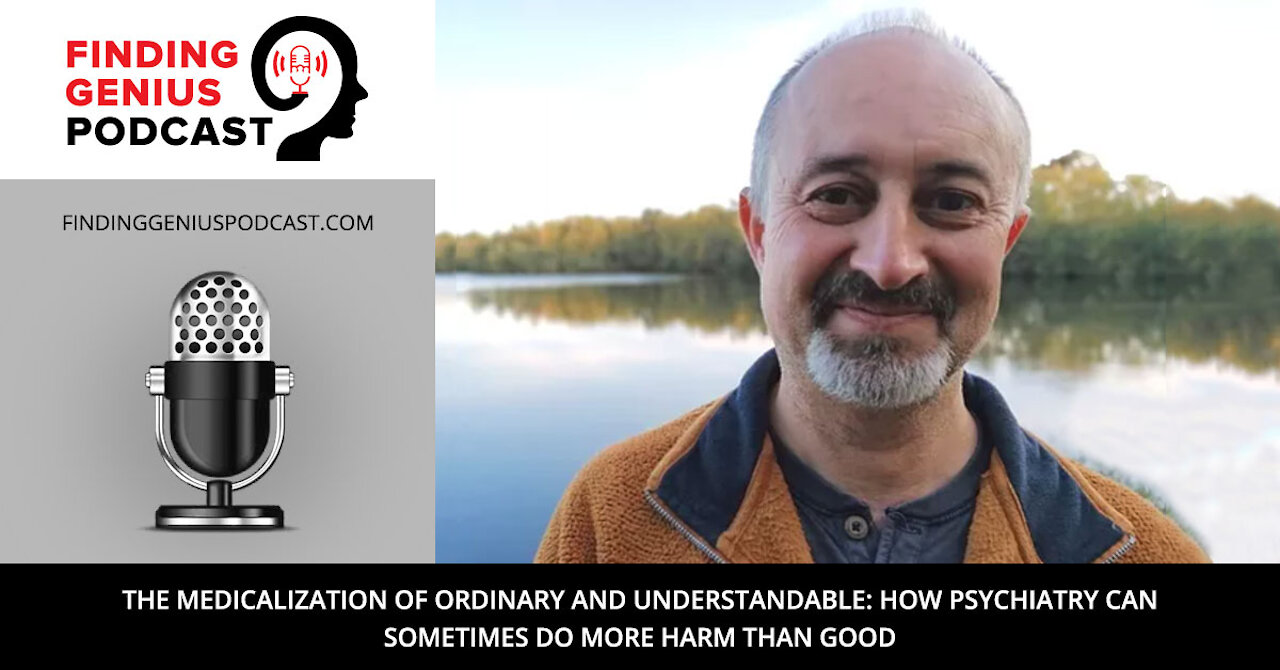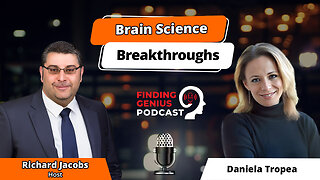Premium Only Content

How Psychiatry Can Sometimes Do More Harm Than Good
“If it ain’t broke, don’t fix it.” It’s a saying you’ve probably heard before, but today’s episode puts a spin on it and places it in the context of mental health: “If it’s not ‘wrong,’ don’t try to fix it as if it is.”
Tune in to discover:
How and why psychiatric diagnoses have become more like labels that act as consumer brands rather than scientifically-based medical diagnoses
The power of labeling and its effect on self-perception and perception of others
The definition of meta-emotions and how people experience them
How developmental expectations of adolescents and young adults differ between cultures, and the conflict they can create within the person who is held to those expectations
The critical difference between ordinary, understandable emotions and clinical conditions perceived as “wrong” and in need of medical treatment
Dr. Sami Timimi is a consultant child and adolescent psychiatrist who has worked at National Health Service in the UK his entire working life. He’s been involved with several research projects involving mental health and cross-cultural issues, and has contributed to the publication of a dozen books, in addition to many papers and journal articles. He frequently appears in national and international conferences on matters of mental health, and teaches and trains others in his area of expertise.
In the early 90s during his medical training, Dr. Timimi completed a placement in child and adolescent psychiatry, a field that at the time saw children and young people as connected to their history and broader environment (e.g., their parents, peer groups, cultural ideas). It was nothing like what he’d seen in general psychiatric wards, which he describes as dominated by a narrow medicalized approach as opposed to a truly therapeutic approach that embraces a broader understanding of how mental health problems are identified, characterized, and addressed.
For over two decades now, Dr. Timimi has immersed himself in this field as a practicing child and adolescent psychiatrist.
In this episode, he discusses everything from the way cultural and societal expectations and assumptions shape the way we perceive our own experience and the experience of others, to how ideas popularized by many in the psychiatric profession actually contribute to increased rates of distress and feelings of alienation in young adults (especially in the context of the current virus situation).
He also explains how certain treatments given for a short-term problem can actually cause it to become a long-term problem.
But it’s not all bad. Tune in to learn about some extremely successful models for addressing even the most serious mental issues; chances are, you’ve never heard of them before.
Visit https://www.madinamerica.com/ for more information and resources.
Episode also available on Apple Podcasts: http://apple.co/30PvU9C
-
 21:13
21:13
FGP
4 days agoBrain Science Breakthroughs: Translating Neuroscience Into Mental Health Treatments
18 -
 17:12
17:12
World2Briggs
18 hours agoTop 10 Towns You Can Retire or Live on $1900 a month in the Midwest #1
9.59K1 -
 17:25
17:25
BlackDiamondGunsandGear
1 day agoCustom Building the Cheapest MP5
13.6K1 -
 LIVE
LIVE
BEK TV
23 hours agoTrent Loos in the Morning - 11/06/2025
156 watching -
 8:10
8:10
The Shannon Joy Show
17 hours agoShould we even VOTE anymore?
17.1K23 -
 59:34
59:34
Dialogue works
1 day ago $0.02 earnedMohammad Marandi: It’s WAR: Iran’s Supreme Defense Council ACTIVATES –Hezbollah REFUSES to Surrender
49.9K11 -
 10:23
10:23
TheSaltyCracker
18 hours agoMuslims Immediately Threaten New Yorkers After Zohran Win
43.7K449 -
 18:40
18:40
Actual Justice Warrior
17 hours agoMamdani Pledges To DESTROY New York
30.7K73 -
 28:53
28:53
iCkEdMeL
17 hours ago $0.03 earnedBREAKING: 9 DEAD After UPS Plane BURSTS Into Fireball at Louisville Airport
35.1K7 -
 20:52
20:52
Professor Nez
20 hours agoThe TRUTH is Actually WORSE than we Thought...
24.6K24